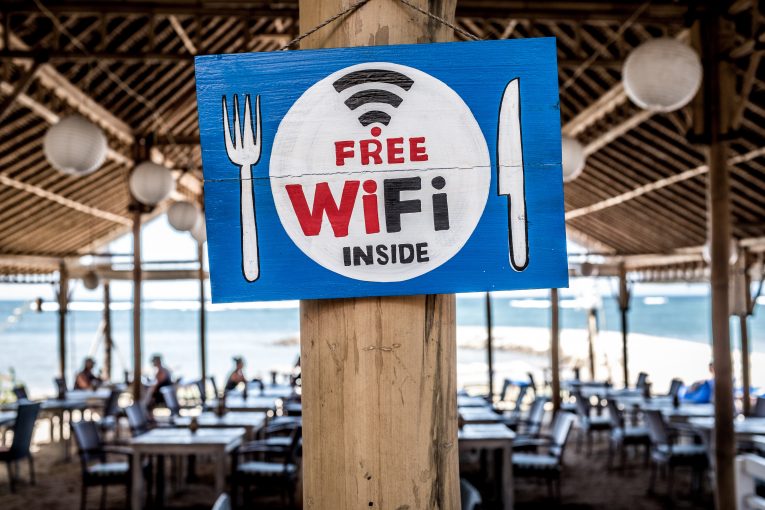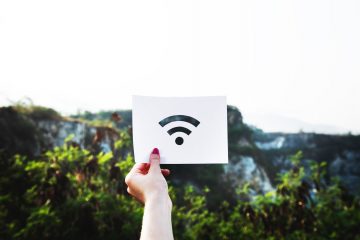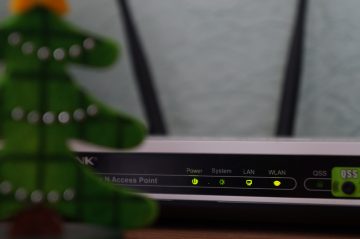How to Stay Safe When You're Using Free Wi-Fi Networks

You're at a branch of an international coffee shop chain in a fancy shopping mall. You order a weakly caffeinated drink that contains a variety of strange and exotic ingredients, and the most important thing on your agenda is to connect to the Internet and share with the world the exact type of beverage you're consuming. Needless to say, the coffee shop has free Wi-Fi, but before you set off on your hashtagging spree, you should probably stop and consider one or two things.
Table of Contents
Is it safe to use public Wi-Fi networks?
For years now, security specialists have been saying that you should be careful when using free wireless networks. An incident from a few months ago showed that they're not just blowing hot air.
In December 2017, customers of a Starbucks branch in Buenos Aires were unpleasantly surprised when their devices started mining cryptocurrency shortly after connecting to the café's free Wi-Fi network. It later turned out that someone had injected a mining script into the unsecured network which enabled them to hijack all the devices connected to it.
After one of the customers spotted the problem, he shared it on Twitter, and the script was promptly removed. The damage was minimal, but the unsecured wireless network could have led to much more disastrous consequences. If it'd dropped ransomware instead of a cryptocurrency miner, for example, the customers would have been much grumpier.
Public Wi-Fi networks as a privacy threat
Ransomware and mining attacks aside, free Wi-Fi networks present another risk. Connecting to the Internet means that your device will exchange information with a server situated in a data center hundreds of miles away. Before the information can go to that server, however, it passes through the Wi-Fi network and the router. It can include login credentials, credit card details if you're shopping online, private messages, etc., and if it's not encrypted, intercepting it is pretty easy. If the Wi-Fi is protected by a password, the information flying between your device and the router is encrypted, but even that might not be enough.
Encryption of the wireless communication between devices and routers began a while ago with the Wired Equivalent Privacy (WEP) protocol. Hackers quickly found a way of breaking it, and in 2003, WEP was replaced by Wi-Fi Protected Access (WPA), a stronger protocol that uses a more complex encryption algorithm. Over the years WPA evolved into WPA2 which was even more secure, but in October 2017, security researchers found a vulnerability that could have serious consequences. The attack is anything but easy to pull off, but if it's aimed at a public network that handles a lot of sensitive information, a hacker might be motivated enough to try it out.
But I really want to instagram my cappuccino
As you can see, using the free wireless network in a hotel or a café could be risky, but in some cases, staying offline simply isn't an option. Here are a few things to consider when you do need to connect to the Internet via a free Wi-Fi network:
- Leave the important stuff for later. Generally speaking, reading the news or watching a YouTube video shouldn't be too much of a problem because, in most cases, you're doing this without handing over any sort of sensitive information. If you log in to your online banking portal, however, you're sending your username and password through a connection that might not be secure. That's not a wise thing to do.
- Turn off file sharing. When you're connected to your home network, file sharing is a convenient way of moving data across devices. On a public Wi-Fi, you don't want to do that. If you're running Windows, open the Control Panel and type "Advanced sharing settings" in the Search bar to find the setting that turns off file sharing. Mac users can do the same thing by clicking the Sharing icon on the System Preferences screen.
- Use a VPN. Corporations use Virtual Private Networks (or VPNs) to give employees secure out-of-the-office access to valuable resources. If you travel a lot and need to do things online that involve sensitive information, it makes sense to invest in a personal VPN. With a Virtual Private Network, you will be sure that all your data is encrypted all the time. That said, some VPNs have been found to be leaking private information, so if you commit to using one, make sure you do some window shopping. Read the reviews, do the research, and choose a reputable service that's trusted by a large number of people.
A free Wi-Fi network, like virtually everything else connected to the Internet, can pose certain risks. If you're aware of them, you should be able to use it without getting yourself in trouble. If you aren't, you might want to consider just enjoying your coffee and finding other ways of socializing.








